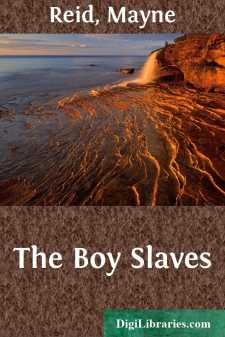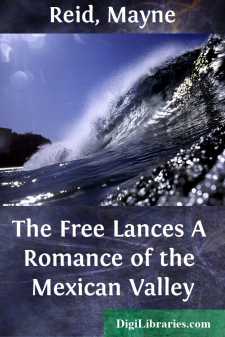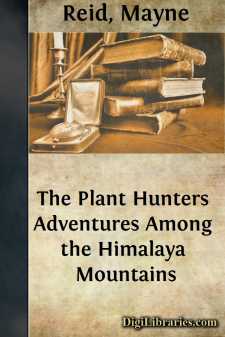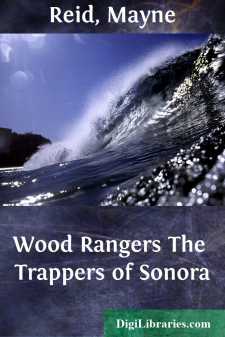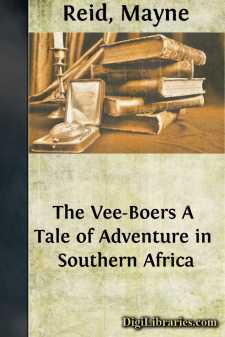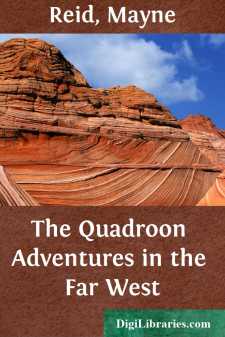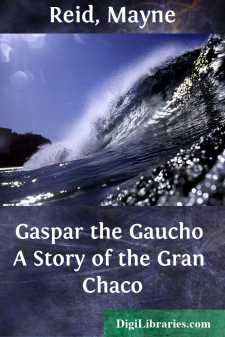Categories
- Antiques & Collectibles 13
- Architecture 36
- Art 48
- Bibles 22
- Biography & Autobiography 813
- Body, Mind & Spirit 142
- Business & Economics 28
- Children's Books 17
- Children's Fiction 14
- Computers 4
- Cooking 94
- Crafts & Hobbies 4
- Drama 346
- Education 46
- Family & Relationships 57
- Fiction 11829
- Games 19
- Gardening 17
- Health & Fitness 34
- History 1377
- House & Home 1
- Humor 147
- Juvenile Fiction 1873
- Juvenile Nonfiction 202
- Language Arts & Disciplines 88
- Law 16
- Literary Collections 686
- Literary Criticism 179
- Mathematics 13
- Medical 41
- Music 40
- Nature 179
- Non-Classifiable 1768
- Performing Arts 7
- Periodicals 1453
- Philosophy 64
- Photography 2
- Poetry 896
- Political Science 203
- Psychology 42
- Reference 154
- Religion 513
- Science 126
- Self-Help 84
- Social Science 81
- Sports & Recreation 34
- Study Aids 3
- Technology & Engineering 59
- Transportation 23
- Travel 463
- True Crime 29
The Boy Slaves
by: Mayne Reid
Description:
Excerpt
AUTHOR'S NOTE.
Captain Mayne Reid is pleased to have had the help of an American Author in preparing for publication this story of "The Boy Slaves," and takes the present opportunity of acknowledging that help, which has kindly extended beyond matters of merely external form, to points of narrative and composition, which are here embodied with the result of his own labor.
The Rancho, December, 1864.
No one who has written books for the young during the present century ever had so large a circle of readers as Captain Mayne Reid, or ever was so well fitted by circumstances to write the books by which he is chiefly known. His life, which was an adventurous one, was ripened with the experience of two Continents, and his temperament, which was an ardent one, reflected the traits of two races. Irish by birth, he was American in his sympathies with the people of the New World, whose acquaintance he made at an early period, among whom he lived for years, and whose battles he helped to win. He was probably more familiar with the Southern and Western portion of the United States forty years ago than any native-born American of that time. A curious interest attaches to the life of Captain Reid, but it is not of the kind that casual biographers dwell upon. If he had written it himself it would have charmed thousands of readers, who can now merely imagine what it might have been from the glimpses of it which they obtain in his writings. It was not passed in the fierce light of publicity, but in that simple, silent obscurity which is the lot of most men, and is their happiness, if they only knew it.
Briefly related, the life of Captain Reid was as follows: He was born in 1818, in the north of Ireland, the son of a Presbyterian clergyman, who was a type of the class which Goldsmith has described so freshly in the "Deserted Village," and was highly thought of for his labors among the poor of his neighborhood. An earnest, reverent man, to whom his calling was indeed a sacred one, he designed his son Mayne for the ministry, in the hope, no doubt, that he would be his successor. But nature had something to say about that, as well as his good father. He began to study for the ministry, but it was not long before he was drawn in another direction. Always a great reader, his favorite books were descriptions of travel in foreign lands, particularly those which dealt with the scenery, the people, and the resources of America. The spell which these exercised over his imagination, joined to a love of adventure which was inherent in his temperament, and inherited, perhaps with his race, determined his career. At the age of twenty he closed his theological tomes, and girding up his loins with a stout heart he sailed from the shores of the Old World for the New. Following the spirit in his feet he landed at New Orleans, which was probably a more promising field for a young man of his talents than any Northern city, and was speedily engaged in business. The nature of this business is not stated, further than it was that of a trader; but whatever it was it obliged this young Irishman to make long journeys into the interior of the country, which was almost a terra incognita. Sparsely settled, where settled at all, it was still clothed in primeval verdure—here in the endless reach of savannas, there in the depth of pathless woods, and far away to the North and the West in those monotonous ocean-like levels of land for which the speech of England has no name—the Prairies....


